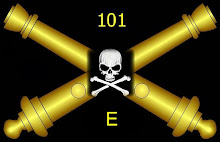RAMADI, Iraq - For veterans of Ramadi, it seems like a different place and a different war.Just last year, soldiers were breaking down doors, hunting insurgents and struggling to secure the city block by block. U.S. troops now are invited into the homes of sheiks for lunch.
Life is not all good in this former Sunni extremist fiefdom about 70 miles west of Baghdad, but it’s better. Today’s worries aren’t car bombs or shelling in the streets. There’s peace enough to complain about the crippled electricity grid, dirty water, broken sewers.
Marines and soldiers also have adopted different roles: urban planners, community relations managers and political operatives.
“We’re knee-deep in counterinsurgency here,” said Marine Capt. Brian Cillessen, who’s in charge of a group of about 150 Marines living and working in a house they rent in southern Ramadi.
“We came here with a very conventional mind-set. We weren’t expecting this. … I joined the Marine Corps to be a point man on a patrol,” chuckled the San Juan, N.M., native.
Instead, Cillessen and his troops are conducting a census and registering weapons, repairing sewer systems, ensuring fuel for cooking and heat is sold for fair prices, approving contracts to build new schools, parks and playgrounds, and perhaps most important, cultivating relationships with Iraqi police and citizens.
The violence in Anbar province is by no means over. So far this year 135 troops have died here—16 percent of all military deaths in Iraq, according to figures compiled by The Associated Press.
But from 2004 through 2006, an average of 345 members of coalition forces died each year in Anbar province or about 41 percent of all military deaths.
The decline of violence rests on a widening basis of trust. It’s cultivated in handshakes, platters heaped with rice, chicken and lamb, cup after cup of sweet tea and clouds of cigarette smoke.
Anbar is a sprawling western province that includes Ramadi and stretches through mainly desert from near Baghdad to the borders of Syria, Jordan and Saudi Arabia.
Last year, U.S. Marine Corps intelligence officials declared Anbar lost. “The social and political situation has deteriorated to a point” where U.S. and Iraqi troops “are no longer capable of militarily defeating the insurgency,” according to a five-page report written in August 2006 by Col. Peter Devlin, a military intelligence officer with the Marine Expeditionary Force.
The Sunni insurgency had sunk roots so deep in Anbar that the Islamic State of Iraq, an al-Qaida front group, declared Ramadi its capital.
“These guys were ruthless,” said Col. John W. Charlton of Spokane, Wash., the American commander responsible for Ramadi. “They would come in and cut young men’s heads off and drag their bodies through the streets.”
An important turning point was the founding late last year of the Anbar Awakening Council by the charismatic Sheik Abdul Sattar Abu Risha. He united dozens of Sunni tribes against al-Qaida.
Fed up with the violence and eager for revenge against al-Qaida members who killed 10 family members, including his father, Abu Risha persuaded citizens to join the police force. They did—in droves—despite past attacks against recruits.
“Sheiks see themselves as prominent leaders of the community. They recognize you have to have good, intelligent people running things,” Charlton said. “(Abu Risha) wasn’t saying, ‘Do this for me.’ He was saying, ‘Do this for your family, for your country.’”
There are now 8,000 police officers and 14 police stations in Ramadi, according to the U.S. military. That’s compares with fewer than 200 officers in spring 2006.
“Al-Qaida was just reeling,” Charlton said. “They lost their capital. They lost all their good areas around there. … We essentially made a gated community out of a city of 300,000 people.”
Full AP article by Kim Curtis
here.







